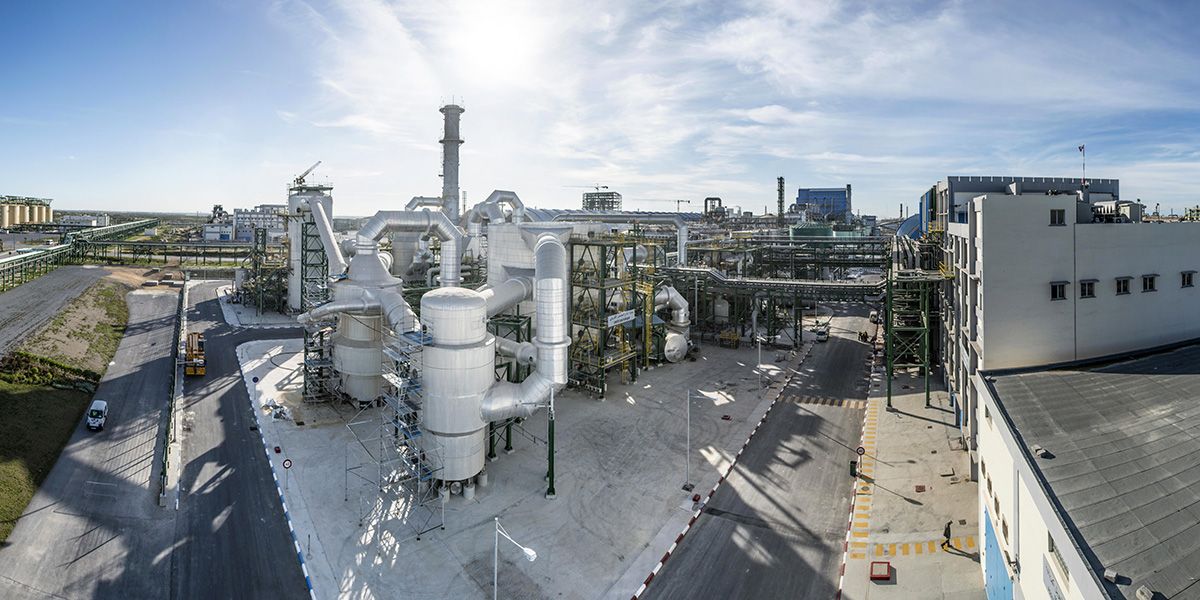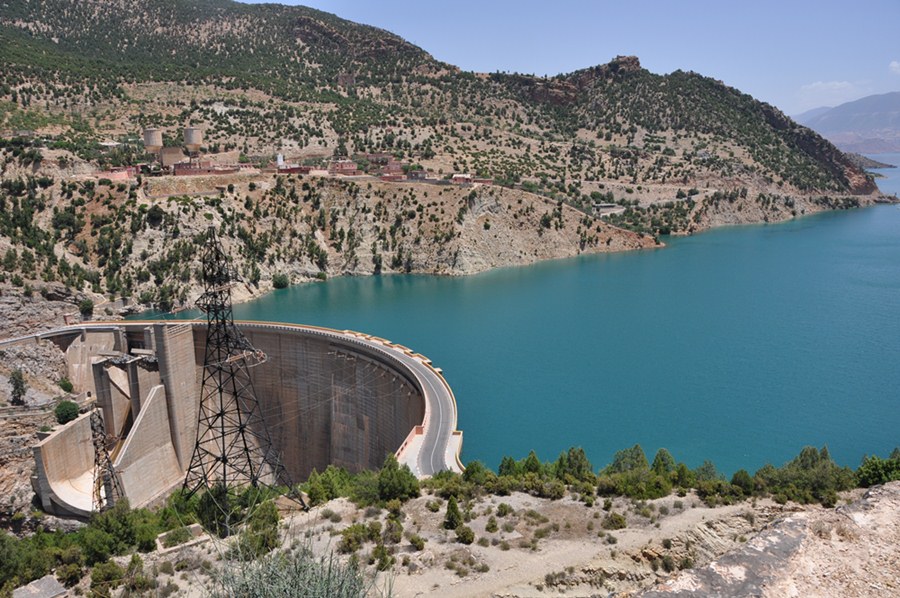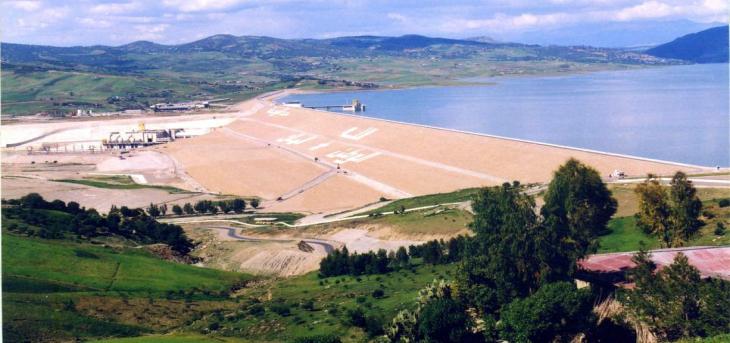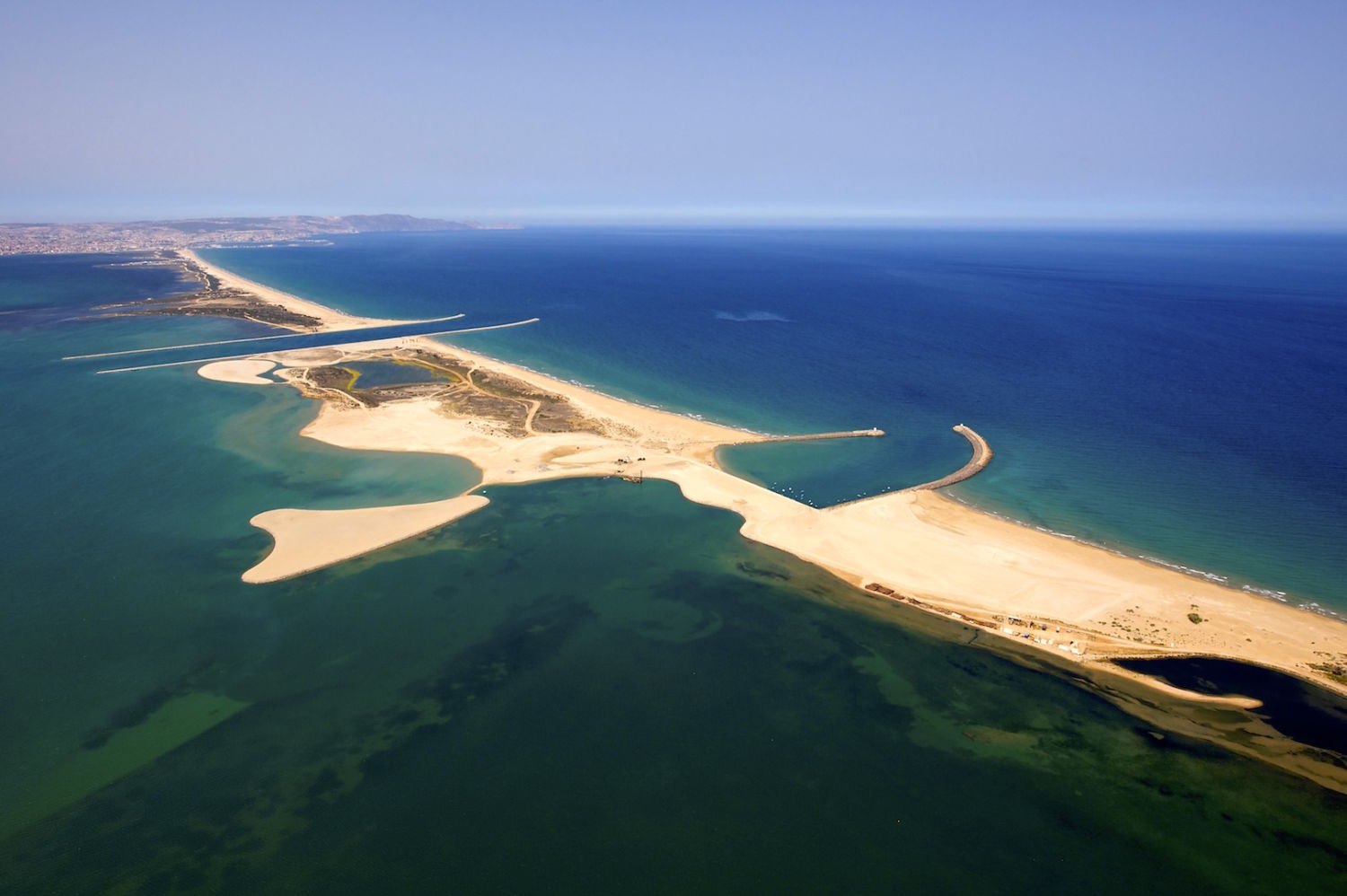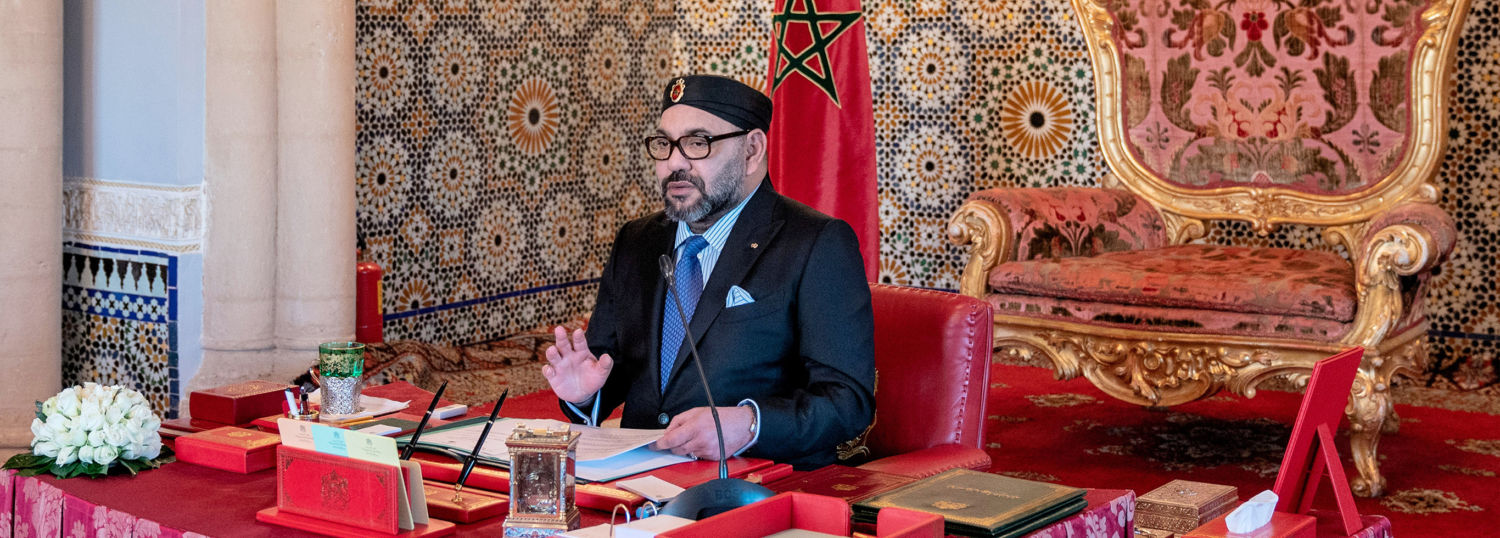Studies
The carrying out of studies is of capital importance in the intervention of the Ministry, through the lighting of the decision in the field of migration, by providing reliable and real data. In addition to the establishment of a network of Moroccan researchers who develops reflection on the theme of migration, and the organization of study days in the field, the Ministry carries out studies with the aim of understanding and explaining certain phenomena related to migration and migrants, and propose adequate and operational solutions.
Study on the needs and expectations of young MREs
Background:
The issue of young MREs is of particular importance for our country. Aware of this importance, His Majesty King Mohammed VI, whom God glorified him underlined in his speech delivered on August 20, 2012 and which had a premonitory value that one cannot evoke today the Moroccan youth, without also addressing its component representing our young compatriots from emigration and established abroad. “Their solid attachment to their country, which maintains close relationships with them, reflects their full support for the directions that we have set and the development projects that we have launched,” said His Majesty.
Culture, identity, strengthening ties with Morocco, education and economic integration are all issues that concern us with young MREs.
It is in this sense that a study has been carried out on the expectations and needs of young MREs.
The study made it possible to establish a diagnosis of the problems relating to the situation of young MRE and an inventory of suitability, strengths and weaknesses of the existing programs compared to their expectations.
Objectives of the study:
Establish a diagnosis of the problems relating to the situation of young MRE and an inventory of fixtures, strengths and weaknesses of the existing programs compared to their expectations;
Study the needs of these young people according to the specificities of each age group, sex as well as those of their host countries;
Establish a distribution map of the needs, expectations and aspirations of young MREs which takes into account the particularities of each geographic region concerned;
Examine international best practices in the protection of young migrants and their socio-professional, economic and cultural support in order to successfully integrate into the host countries;
Formulate a vision for the implementation of a policy for the benefit of young MRE, adapted to their needs and expectations;
Declining the said policy into a detailed action plan of socio-professional, economic and cultural integration programs to be carried out in the host countries, on the one hand and in Morocco on the other.
Explore the means and tools for setting up, implementing, monitoring and evaluating these programs for young MREs.
Results achieved:
The main results of this study, carried out on a sample of 2,146 young people, in 6 host countries for MRE, namely Germany, Belgium, France, Italy, the Netherlands, are:
Realization of an inventory of the level of adequacy, convenience and strengths and weaknesses of the existing programs compared to the expectations of young MRE;
Definition of the needs and expectations of young MRE, according to the specificities of each age group, sex as well as those of the countries. of reception;
Development of a strategic vision for the implementation of a policy for the benefit of “young MRE” adapted to their needs and expectations;
Development of a detailed action plan for socio-professional, economic and cultural integration programs for young MREs.
The main results of this study were presented according to three axes, in relation to the needs of young MRE, namely: 1) integration in the societies of residence, 2) attachment to identity in Morocco and 3) citizenship in host countries.
The results for the first dimension relating to integration in host countries show that 23% feel discriminated against entering the labor market and 36% find it difficult to continue their studies. In addition, 63% of them have an average educational level above the baccalaureate and 80% declare that they are either in training (pupils or students) or employed (salaried or liberal). On the other hand, 75% of young MRE live in the family home and declare that they need to access their own accommodation.
The results relating to the attachment to identity in Morocco, demonstrate that the young MRE express a strong attachment to their mother country, this is manifested by the mastery of the national languages, the frequency of visits to Morocco, investment in the in Morocco and the final return to the country. Indeed, 68.8% of these young people master the national languages, three-quarters of them visit Morocco at least once a year and 75% of these visits exceed a stay of 16 days in the country. In terms of return, 62% of them plan to return to Morocco for investment, 48% to work there and 50% to retire there. On the other hand, 85% of young MRE prefer their spouse to be Moroccan.
Finally, in terms of citizenship in the host countries, the survey revealed that 75% of the young people surveyed feel that they belong to their host country and 57% identify themselves as carriers of both cultures at the same time. However, only less than 10% of
respondents belong to a political party or association and 38% participate in the elections.
At the end of this investigative work, a strategy to strengthen ties with young MREs is developed according to a systemic and multi-partner approach. This strategy is built around three pillars (integration in host countries, strengthening ties with Morocco and citizenship on both shores) and three strategic levers (monitoring young MRE, governance-networking and media -communication). It is also made up of 13 fields of action and 38 operational projects designed in full harmony with the national strategy intended for Moroccans living abroad.
Strategic Action Areas to realize the strategy:
Based on the needs identified, the strategy for young MREs will target the following actions:
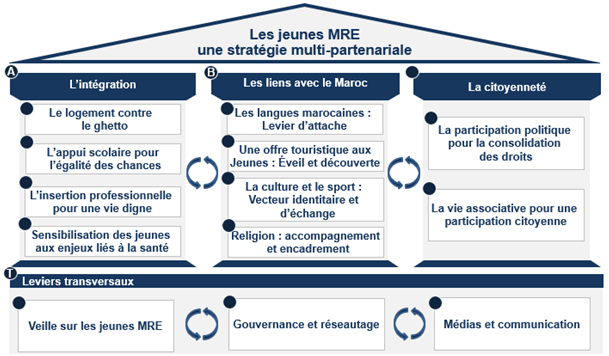
Study on social protection of MREs
Background:
The improvement of public services rendered to Moroccans residing abroad occupy a special place within the programs of the Ministry responsible for Moroccans residing abroad and in migration affairs, in order to be able to respond to the concerns and constraints to which are faced by Moroccan nationals living abroad, particularly in the test of the economic crisis in Europe and its impact on the rights and social benefits of migrant workers and without forgetting the reluctance of certain countries to sign bilateral conventions with Morocco in social security.
It is in this sense that the Ministry, in partnership with the various actors concerned, has set itself the objective of ensuring the promotion of social coverage of MREs by strengthening the portability of social benefits with a view to preserving rights. acquired as well as the extension and updating of bilateral social security conventions between the signatory countries and Morocco, as well as preserving the social rights and social protection of Moroccan workers residing in Europe following the economic and financial crisis.
In this context, the Ministry in charge of Moroccans Residing Abroad, the Ministry of Employment and Professional Training and the Ministry of Foreign Affairs and Cooperation work together to defend the interests and rights relating to social security of our nationals on the territory of the host country and also during their stay or after their final return to Morocco and with a view to maintaining the rights acquired or in the process of being acquired in order to benefit or open the right to benefits and to transfer the benefits guaranteed under the legislation of the country of employment in the territory of the country of origin.
Based on its concern to protect the rights and interests of Moroccans living abroad, the Ministry carried out a study in consultation with the ministerial departments and institutions concerned with the aim of diagnosing social protection conventions signed between the Kingdom of Morocco and certain countries of reception.
The improvement of public services rendered to Moroccans residing abroad occupy a special place within the program of the current government, and this in order to be able to respond to the concerns and constraints faced by Moroccan nationals residing abroad and in particular to the ordeal of the economic crisis in Europe and its impact on the rights and social gains of migrant workers and without forgetting the reluctance of certain African and Arab countries to sign bilateral conventions in matters of social security with Morocco.
In addition, this same program has set itself the objective of improving social security coverage for this category of workers by strengthening the portability of social benefits with a view to preserving acquired rights and extending and updating them. bilateral social security conventions with the signatory countries with Morocco also preserve social rights and social protection for Moroccan workers living in Europe following the economic and financial crisis.
In this context, the Ministry in charge of Moroccans Residing Abroad, the Ministry of Employment and Vocational Training and the Ministry of Foreign Affairs and Cooperation work together to defend the interests and rights relating to social security of our nationals on the territory of the host country and also during their stay or after their final return to Morocco and with a view to maintaining the rights acquired or in the process of being acquired in order to benefit or open the right to benefits and to transfer the benefits guaranteed under the legislation of the country of employment in the territory of the country of origin.
Objectives of the study:
This study aims to publicize the existing, and to revise bilateral conventions in order to extend their scope and the basket of services. Thus, the main objectives of the study are:
Carry out a global diagnosis of the social security conventions concluded between Morocco and the various foreign countries;
Carry out a general assessment of the state of play of the implementation of the provisions relating to the social security of Moroccan migrants stipulated by the association agreement between Morocco and the European communities.
Determine the proportion of Moroccans who benefit from the benefits guaranteed by these agreements in order to assess the beneficiaries’ real access to their rights;
Examine the advisability of updating social security conventions taking into account the development of social security legislation in signatory countries and the enlargement their material and personal fields;
Examine the possibilities of signing bilateral conventions on social security coverage for Moroccan workers with sub-Saharan and Gulf countries which are mostly self-employed or exercise liberal professions and have no social security coverage;
Define mechanisms and propose alternatives allowing Moroccans residing in certain countries whose governments or parliament refuse to sign or ratify social security conventions to benefit from social security benefits and health care (eg Italy) by based on the benchmark of successful experiences from certain countries (Tunisia, Turkey, etc.).
Main results of the study:
The study highlights that:
Out of 100 countries where the MRE reside, only 18 conventions have been signed by Morocco, of which 14 are operational.
Moroccans living abroad are not sufficiently informed of their rights.
Bilateral social security conventions are not protective enough because they do not cover all categories of Moroccan workers and do not meet all of their needs.
One of the avenues initiated by the Ministry to remedy these shortcomings is to include MREs residing in host countries who have not signed a Social Protection agreement with Morocco in the categories of beneficiaries stipulated in article 2 Law No. 99-15 on pension and compulsory health insurance systems (AMO).
Establishment of an information watch and document management system
Background:
The rapid evolution of the demographic size of MDMs and their socio-demographic, educational and professional characteristics, and the diversity of their geographic destinations, the evolution of their needs and their concerns in particular for the coming generations, as well as the new migration policy initiated by His Majesty the King, based on the principle of non-discrimination and equal rights between nationals and foreigners, require continuous improvement in the quality of information and the monitoring and monitoring instruments used. In this context, the MCMREAM carried out a project to set up an integrated information monitoring and document management system which has the strategic objective of improving the information and communication governance of the Ministry.
Objectives of the study:
Monitor and learn about the political, economic and legislative changes that affect our compatriots living abroad in order to take appropriate measures towards them and anticipate any provisions that may harm their achievements and rights in host country or after their provisional or final return to Morocco.
Improve communication with consulates in host countries and pool information watch efforts;
Improve the storage, management and sharing of documentation related to the different projects and activities of MCMREAM.
Store and disseminate information and documents deemed relevant resulting from the information monitoring system.
Results achieved:
The conclusive result of the project made it possible to set up an operational platform which makes it possible to watch over MRE and migration affairs issues, by providing information concerning them around the world in real time, in order to anticipate monitoring certain issues and making the necessary arrangements and decisions at the appropriate time.
At the same time, the project oversaw the establishment of Electronic Document Management through the establishment of an operational electronic document management system, which allows electronic storage of information collected from the information watch system, as well as all the documentation available at the level of the Ministry. This system allows, on the one hand to facilitate the management of documents, and on the other hand, the fluidity of the flow of information between the various structures of the Ministry.
Talents Abroad: The Case of Moroccans Around the World
The Ministry Responsible for Moroccans Residing Abroad and Migration Affairs, carried out in 2017, in collaboration with the Organization for Economic Cooperation and Development (OECD), as part of the SHARAKA project, a study on cartography Moroccans living abroad in OECD countries. In addition to the results it has produced, this study has also made it possible to strengthen the capacities of the Ministry and the Center for Demographic Studies and Research (CERED), in terms of mapping and analysis of statistical data on the The main results of this study are as follows:
In 2010/2011, 2.6 million MRE (46% of them women) were settled in OECD countries, this number placed the Moroccan community in the tenth rank of the largest groups of emigrants in OECD countries, and also, the largest community from the MENA area. Nearly 90% of MRE reside in European countries. The top destination country is France (33.5%), followed by Spain (25.1%), Italy (12.5%), Belgium (7.2%) and the Netherlands (5.9%). % of the Moroccan community is of working age (that is to say between 15 and 64 years old) divided into:
| Age range | 15-24 Years | 25-34 Years | 35-44 Years | 45-55 Years | 55-64 Years |
| Taux | 11% | 22% | 24% | 19% | 14% |
Between 2010 and 2014, the countries that experienced a significant increase in the number of Moroccan emigrants were Italy (76,000), Spain (32,000) and Belgium (20,000). While, the only country that has experienced a decrease is the Netherlands (9,000).
Regarding the reasons that pushed Moroccans to expatriate, the report ranks those of a family order in the first place (58%), followed by professional reasons (33%). While the other reasons (further studies, humanitarian reasons, etc.) are minimal. To this end, the number of Moroccan students in international mobility stagnated between 2009 and 2012 around 51,000 students. These students are concentrated in France (56%), followed by Spain (11.7%), then Germany and Canada with (10.9%) and (8.4%) respectively.
Moroccan migratory flows recorded a sharp decline between 2008 and 2014, going from nearly 160,000 / year to almost 80,000 / year. This decline was mainly driven by the drop in flows to Spain. This drop is likely the result of the deterioration of employment prospects in Spain during the economic crisis, which made it less attractive. Large decreases are also observed for Italy, Belgium and the Netherlands, but the absolute magnitude of these variations is much less than the variation in flows to Spain. In addition, three new groups of destination countries have emerged: the Nordic countries (with the exception of Iceland), Austria and Switzerland, Japan and Korea. These countries attract a small but growing number of Moroccan emigrants.
A second trend to emerge from this study corresponds to the increase in the number of seasonal workers in Moroccan migratory flows to OECD countries. In 2012, almost 10,000 Moroccan seasonal workers joined the top three destination countries – Spain, France and Italy.
The third trend revealed by the study concerns feminization and the increase in the level of education of recent migratory flows. In fact, two thirds of new arrivals in 2012 were women, and 63% were under 30 years of age. Although the majority of newcomers have an intermediate or high level of education, 46% of newcomers have a low level of education. In addition, almost 80% of the new arrivals were not employed in Morocco.
In total, the number of highly educated MREs more than doubled between 2000-2001 and 2010-2011, reaching almost half a million in OECD countries. This increase is driven by recent flows and especially by that of new migrant women.
Regarding remittances, Morocco posted the third largest remittance flow as a percentage of GDP in 2013 (7%), the largest in OECD countries, after the Philippines (10 %) and El Salvador (16%).
Based on the 2014 RGPH, the Moroccan population included 210,000 return migrants to Morocco (41% of women), against 165,000 in 2004 and 117,000 in 1994. Among all the return immigrants identified in the 2014 RGHP, nearly two-thirds (135,000) were born in Morocco, while the rest (75,000) were people born abroad to Moroccan parents.
Returning Moroccan emigrants, both men and women, generally have a higher level of education than the general population in Morocco. Indeed, the share of return migrants with no education or whose level of education does not exceed primary education is low, while the share of return migrants who graduate from upper secondary or higher education is higher than that of the general population.
Cultural policy study
This study consisted first of all in carrying out a diagnosis of the existing cultural offer in favor of MREs, then in developing a cultural strategy by translating it into concrete projects and actions in the host countries and also in Morocco.
The new cultural policy in favor of Moroccans around the world is based on 2 major pillars:
An open Morocco, rich in its traditions and proud of the Moroccans of the world.
An effective cultural policy, which increases its impact with innovative means.
This policy revolves around 4 strategic axes with a particular focus on cultural centers:
Axis 1: a cultural offer that meets the requirements of Moroccans around the world.
Axis 2: an environment favorable to creation and dissemination, which brings together MRE actors and Morocco
Axis 3: Adequate means for a cultural action with high impact
Axis 4: a dynamic of professionalization to be encouraged.
These 4 strategic axes structuring the new cultural policy are available in 12 projects, supplemented by 3 projects relating to cultural centers.
Study on Vulnerable MRE Women
According to statistics compiled by the Ministry of Foreign Affairs and Cooperation in 2015, MRE women are concentrated in Jordan (12%), Sultanate Oman (10%), United Arab Emirates (8%) and Saudi Arabia (6%) (Jordan 79%; UAE 75%; Bahrain 69%, RAS Riyadh 53%; Qatar 43%). In Sub-Saharan Africa, an increasingly large community, 66% in Ivory Coast and Senegal, is made up of women who have emigrated alone or as part of family reunification or the pursuit of their higher education, especially in Senegal. (Bamako-Mali 60%; Gabon-Libreville 57%; Equatorial Guinea-Malabo 7%).
Labor legislation in these host countries, poorly adapted or nonexistent, fixing the rights of migrant workers, means that MRE women, if they cannot return to Morocco, fall into the nets of human trafficking networks that exploit them ends of forced labor, prostitution… or others. These conditions have severely damaged the image of the MRE woman in certain Arab and African countries.
As part of the implementation of its strategy, the Ministry attaches paramount importance to the question of the situation of vulnerable MRE women. In this sense, a study has been developed whose objectives are the improvement of working conditions in the context of economic migration, the support of migrant women in host countries as well as the development of the image of Moroccan woman in the target countries.
The main findings of the diagnosis:
The risk of vulnerability is strongly linked to the level of qualification of MRE Women and the types of visa granted. Three categories of risk can therefore be distinguished:
MRE women wishing to emigrate to Gulf countries at low risk of vulnerability: family reunification and / or exercising a highly qualified profession.
Potential risks of vulnerability for women working in a low-skilled job or with courtesy visas.
Proven risks of vulnerability: women engaged in illegal activity or victims of abuse.
The main stages of the action plan programmed in the proposed strategy:
The support measures before departure aim to reduce the flow of emigration to the “countries at risk” through raising awareness among women MRE as well as supporting them in the administrative procedures of departure:
Awareness / right to information: Organization of seminars; Preparation of a prevention guide; Creation of a toll free number in Morocco.
Recruitment / placement: Definition of a placement policy; Structuring of intermediaries; Formalization of standard contracts.
Pre-departure support: Carrying out a pre-departure interview; Creation of a database.
Development of a support system in the host countries offering medical, legal and emergency assistance:
Reception of workers.
Support for workers: Reinforcement of the support system; Emergency number by country.
Implementation of a return support system.
Study on the school performance of MRE children
The Ministry launched, in collaboration with a specialized design office last October, a comprehensive study to diagnose the state of the school performance of MRE students in their host countries, and develop a plan of action to better support them during their school career.
During the diagnostic phase, more than a hundred institutional and associative actors, students and parents of students were interviewed both in Morocco and in the target host countries (Germany, Spain, France, Belgium , Italy, Netherlands, Algeria and Ivory Coast).
It emerges from this diagnosis that the educational performance of children of the Moroccan community abroad is conditioned by several factors, mainly related to their social and family environment, the low level of associative supervision, as well as the measures taken in this meaning by the host countries. The weak involvement of parents and guardians of pupils is considered to be the major factor in their demotivation and consequently the weakness of their academic performance.
Added to this is the lack of human, financial and technical resources allocated to associations. This hinders the effectiveness of their dedicated tutoring programs. Also, the educational policies adopted by European countries do not reach the expected objectives in order to ensure the integration of MRE pupils.
The proposed strategy is based on four pillars:
Sensitize and inform stakeholders about their roles, rights and obligations;
Ensure effective academic support for MRE students
Motivate students in difficulty and encourage students with high potential;
Strengthen the institutional management of actions for MRE students.
Within the framework of the various programs, 21 projects have been defined to achieve the objectives set by the strategy and whose implementation is spread over 3 years with prioritization based on the impact of the projects and their level of urgency.
Overview of the functioning of the Houses of Moroccans of the World and of Migration Affairs
Since 2009, the Houses of Moroccans around the world and in Migration Affairs have been created as decentralized services of the Ministry in order to facilitate relations and procedures between Moroccans residing abroad and regularized migrants on the one hand, and Moroccan institutions, on the other hand.
Faced with the changes observed with regard to the needs and expectations of MREs and the Kingdom’s commitments with regard to the integration of migrants, as well as the modes of territorial governance anchored within the framework of the process of advanced regionalization, the Ministry launched within the framework of the SHARAKA project, a study on the functioning of the Houses of Moroccans of the World and Migration Affairs.
The study reveals three observations: (i) lack of tools for steering the performance of the action in the area of intervention of the houses, (ii) insufficient integration of the houses in their working environment and (iii) low awareness of the houses among beneficiaries and partners.
In order to overcome these limitations, the study resulted in a short, medium and long-term action plan at the national, regional and local levels.
Mobilization of the young generations of MRE in entrepreneurship and investment in Morocco
The demographic transition that our country is experiencing is reflected in its community abroad. Desiring to take up the challenge of maintaining ties with the new generations of MREs and involving them in the country’s development projects, the Ministry launched, as part of the SHARAKA project, a study on the mobilization of young generations of MREs in the region. entrepreneurship and investment in Morocco. Documentary exploration and work carried out in the field led to the following conclusions:
• The attraction for entrepreneurship is strong among young MRE regardless of their country of birth;
• Interest in entrepreneurship increases very strongly with cultural attachment to Morocco;
• In keeping with their ancestors, the younger generations prefer to invest in their regions of origin;
• Improving information is essential to encourage them to invest;
At the end of this work, a set of recommendations were made, namely:
• Promote existing systems through new tools and communication channels;
• Set up a network of MRE entrepreneurs returning to Morocco;
• Remain attentive to MREs through the implementation of an annual barometer, to monitor changes in trends and needs of MREs;
• Anchor the “investment” dimension in international events (classic or to be created);
• Facilitate the financing of entrepreneurs via MDM-invest and help mobilize the savings of MRE investors.
Study on the portability of the rights of MRE retirees in Morocco
Convinced of the continuous contribution of first-time migrants in the development of Morocco, the Ministry delegated to the Minister of Foreign Affairs, African Cooperation and Moroccans residing abroad, responsible for Moroccans residing abroad, led, as part of a project funded by the European Union (SHARAKA project), a study on the state of play regarding the access of retired MREs settled in Morocco to social rights acquired in the host countries, as well than an analysis of the related legal and administrative procedures.
The study notes that several factors limit retirees’ access to their acquired rights and which may lead to the suspension of benefits. Among these factors, the study identified: i) the weakness of the support reserved for this population, ii) the complexity and rigidity of legal rules and collection procedures, iii) the economic and social vulnerability of MRE which limits access to the administrations responsible for managing retirement benefits and health care (low educational level, isolation, language problem, etc.).
In order to overcome these barriers, the study makes a number of recommendations to streamline the various procedures and facilitate retirees’ access to their rights.
Address
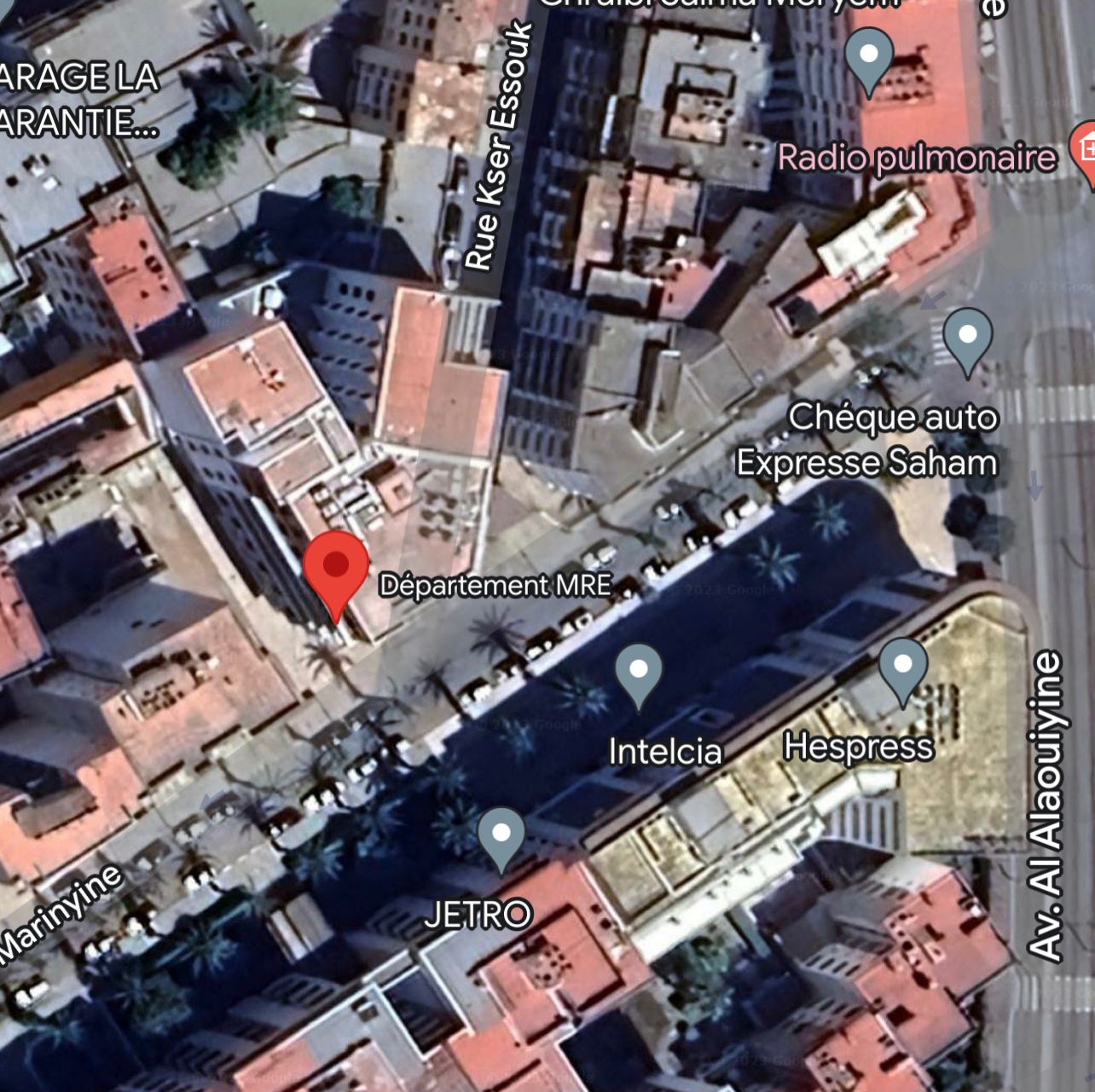
Contact information
Standard 1 : 212537776564
Standard 2 : 212537776588
Permanence (4.30 pm to 6.30 pm): +212 6 61 07 60 60
Fax : 212537770006
Address : Angle Rue Al Mariniyine et Rue Kssar Essouk, Hassan, Rabat





